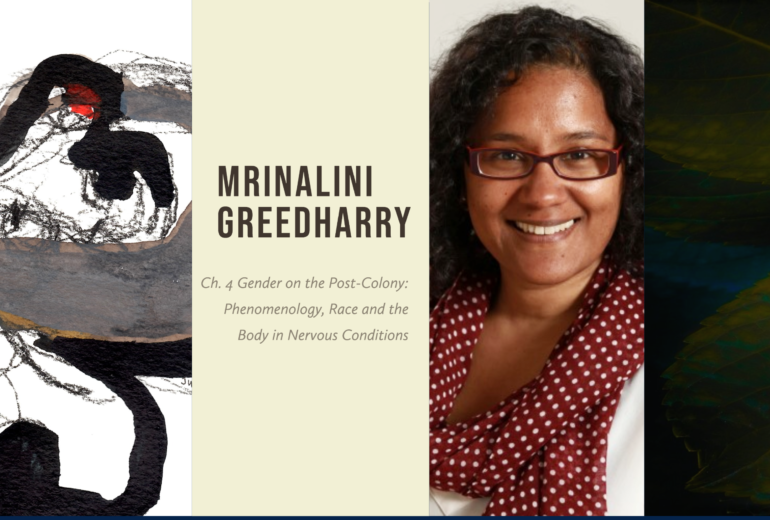Ch4. Gender on the Post-Colony: Phenomenology, Race and the Body in Nervous Conditions
Mrinalini Greedharry is Associate Professor in the Department of English at Laurentian University, Canada. Her research focuses on how the practices, organization, and theory of studying English literature engender postcolonial subjects, which builds on her longstanding interest in the ways that postcolonial theory can generate new ways of thinking about subject-formation in general. She is the author of Postcolonial Theory and Psychoanalysis (Palgrave Macmillan, 2008), chapters in collections such as What Postcolonial Theory Doesn’t Say (Routledge, 2018), The Oxford Handbook of Identities in Organizations (Oxford University Press, 2020) and Towards Organization 2666: Literary Troubling, Undoing and Refusal (Springer, 2020).
Related Co-author with Sweta Rajan-Rankin
This chapter explores the ways in which racialized bodies are re-presented through a phenomenological analysis of Tsitsi Dangaremgba’s Nervous Conditions. In order to situate the body within gendered and racialized narratives, the authors consider three key assertions. First, that gender is itself a colonial construct and postcolonial accounts of Blackness have often been elided in feminist narratives. Second, by drawing on Mbembe’s concept of “necropolitics” and Fanon’s thesis on the impossibility of Black becoming, the “body” itself becomes a key site for analyzing racialized bodies, highlighting the uneasy hierarchies of race and gender in this regard. And third, that in order to move beyond exceptionalist framings of Blackness–whiteness as binaries, keen attention must be paid to the literary offerings of women of color. Nervous Conditions provides a powerful foil to explore these assumptions through the narratives of two young African girls and their ambivalent relationship with Blackness and modernity. The body serves as the final frontier on which the necropolitics of the post-colony are played out in struggle. The intermingling of race, gender, memory, and presence bring together a fresh gaze by which the phenomenological understanding of the racialized body can be uncovered.
~~
For updates from the author and access to supplemental materials (interviews, podcasts, syllabi, etc.) when they are made available, please visit Chapter 4.
Home » Blog » Mrinalini Greedharry




